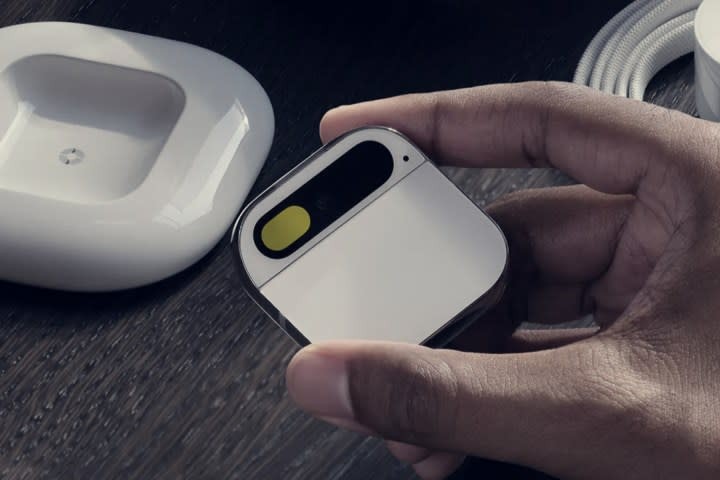
In a sudden turn of events, Humane announced Tuesday that HP has acquired most of its assets for $116 million, marking the end of its ambitious AI Pin wearable device. The hardware startup has immediately halted sales of its $499 AI Pin and informed existing customers that their devices will cease functioning by February 28, 2025.
The acquisition comes just 10 months after the AI Pin's launch, which promised to revolutionize personal computing with a screenless, AI-powered wearable device. Founded by former Apple executives Bethany Bongiorno and Imran Chaudhri, Humane had raised over $230 million to bring their vision to market.
However, the product faced numerous challenges since its debut. Early reviews highlighted major shortcomings, and return rates reportedly exceeded new sales by summer 2024. A safety warning about fire risks in the charging case further complicated matters. Despite reducing the price from $699 to $499 in October 2024, the device failed to gain market traction.
Under the acquisition terms, HP will integrate Humane's engineering and product management teams into a new division called HP IQ. This innovation lab will focus on incorporating AI into HP's product ecosystem, particularly for future workplace applications. HP also gains Humane's proprietary technologies, including the CosmOS AI operating system, which could potentially enhance their PCs and printers.
The deal represents a significant markdown from Humane's earlier valuation aspirations. In May 2024, the company reportedly sought valuations between $750 million and $1 billion, according to Bloomberg.
For current AI Pin owners, Humane has announced that devices will lose connectivity to their servers at 12 p.m. PST on February 28, 2025. This shutdown will disable core functions including calling, messaging, AI queries, and cloud access. Customers who purchased the device within the last 90 days will receive refunds, while earlier buyers will not be compensated.
The AI Pin's demise adds another chapter to the history of ambitious tech products that failed to resonate with consumers, despite substantial funding and innovative visions.